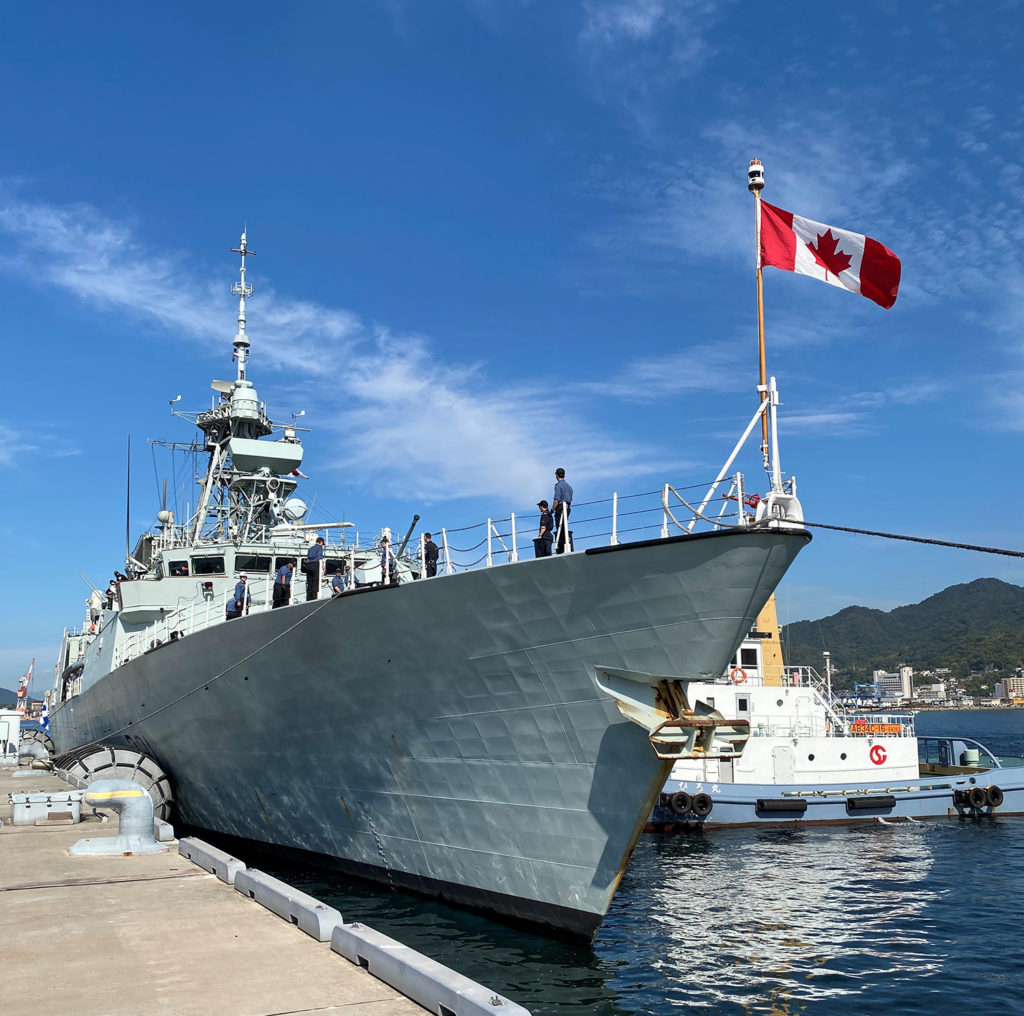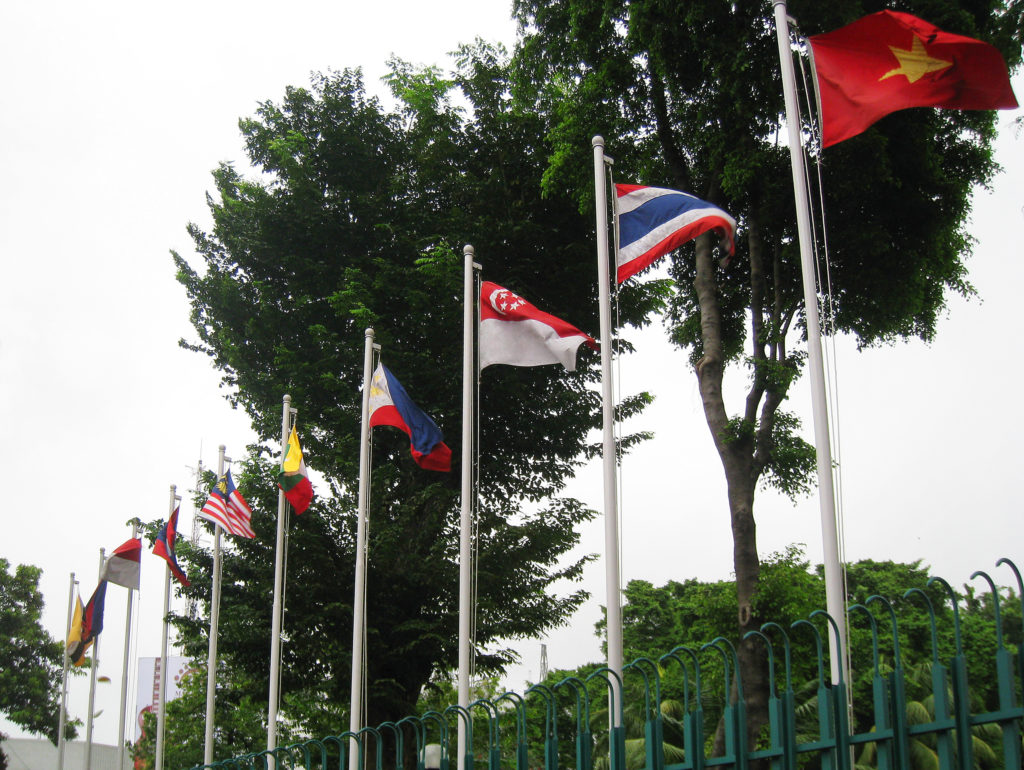“面对中国别强势增加军力,除非你想打仗”
加拿大在线新闻杂志rabble.ca在12月2日发表了两名西方学者撰写的文章,对加拿大政府盲目追随美国公布所谓“印太战略”提出质疑。文章批评加拿大已沦为美国的“哨兵国家”,忽视了发展对华关系的合理呼声。其印太战略只是美国全球主导计划的一环,并不符合加拿大的利益,对中国也充满了“明显的偏见”。此外文章还警告,美国和加拿大“妖魔化”中国的政策,还将进一步加剧亚裔群体面临的种族主义的风险。
普莱斯和乔姆斯基在加拿大媒体发表的评论文章
这两名学者分别是加拿大维多利亚大学历史学名誉教授约翰·普莱斯(john Price)麻省理工学院名誉教授诺姆·乔姆斯基 (Noam Chomsky)。他们在文章标题中直言不讳:“加拿大的印太战略——从联合国和平维护者沦为美国的哨兵国度”。
今年11月27日,加拿大外交部长梅勒妮·乔利(Melanie Joly)公布新版“印太战略”(CIPS)。成为欧盟、法、德、澳之后又一个颁布印太战略的美国盟友国家,这份文件在涉华部分相当消极,并直接将中国描述成“越来越具有破坏性的全球力量”。中国驻加使馆第一时间予以严厉正回应,称其涉华部分大肆对中国攻击抹黑,渲染所谓“中国威胁”,并表示如果加方自不量力,肆意妄为,必将遭到可耻失败,也必将遭到中方有力回击。
“在这份长达两页的评估报告中,CIPS列举了一长串中国被指控的不当行为,似乎就没有什么其它想说的了。”普莱斯和乔姆斯基在文章中写道,加拿大的印太战略报告对“中国令人印象深刻的经济成就”只字不提——中国是加拿大第二大贸易伙伴;中国让8亿人摆脱贫困,联合国也承认了这一点,以及中国在太阳能发电领域的取得的成果。
“坦率地讲,正是因为这种明显的偏见,任何老师都会被迫给加拿大政府对中国的评估不及格。”

加拿大外长乔利(资料图)
文章称,加拿大政府的新口头禅是“必要时我们将挑战中国,另一些时候我们将合作”,“实际上CIPS只是一种尴尬,一种尖锐的争论,而不是外交策略。如果该协定得以实施,加拿大和中国在环境问题上进行实质性合作的可能性将被终结,而在全球气候紧急情况下,环境合作是必不可少的。它还增加了战争和使用核武器的可能性,这是这个时代另一个生存危机。”
两名学者注意到,此前在渥太华举行的亚太事务会议上,几乎所有受邀演讲者——无论其政治立场如何,都明确表示,基于遏制或孤立中国的政策是错误的,而且会适得其反,然而,加拿大政府对此却选择忽略。
“北约代表于6月聚集在马德里,他们在那里通过了新的战略概念。。。。。。换句话说,现在整个世界都是他们的管辖范围。”文章写道,“帝国不会停息,但这样做的赌注太高了。CIPS远不是为加拿大而生的,它就像美国主导的全球计划的车轮上的一个辐条。”
文章警告,中国的确已经成为一个大国,并且地区影响日益扩大,但“公开指责中国搞破坏,加强为军事对抗所做的准备,这难道是应对中国之策吗?除非你想挑起战争。”
文章还提到了加外长乔利在一场演讲中所谓“维持二战以来和平和稳定”的说法。两名学者讽刺道:
“实际上,乔利这么说等同于让我们忘记:朝鲜战争导致300万人死亡、越南战争也导致了300万人丧生,美国于1965年在印尼策划的争辩,最后也导致100万人死亡;被美军驱逐的冲绳人,至今仍在努力驱赶岛上庞大的美军基地;还有成千上万的太平洋岛民目睹了他们的岛屿被美国占领并用于核试验。。。。。。加拿大和美国都对全球变暖负有历史责任。”
文章直言,就在加拿大政府渲染“中国威胁”的时候,亚太地区人民却在积极地同中国打交道,同中国举行了一系列会议。然而,加政府并没有支持这些区域倡议,而是试图向亚洲强加美英的议程——以欧洲为中心的英美联盟担心,亚洲真的就变成了亚洲人的。
普莱斯和乔姆斯基在文章最后再度警告,美国借助妖魔化中国,为自己在亚太地区的行动找借口。然而,加拿大的印太战略和美国全球政策对中国“妖魔化”程度加深,只会进一步加剧对北美亚裔的种族主义攻击。
Canada's Indo-Pacific Strategy': From UN Peacekeeper to U.S. Sentinel State
In this long read, author John Price works with Noam Chomsky to respond to Canada’s Indo-Pacific Strategy.

Vanada's Global Affairs minister Melanie Joly. Credit: Cabinet of Ministers of Ukraine / Wikimedia Commons
In a recent article in the Ottawa Hill-Times, journalist David Crane asked an important question: “Is Canada trying to match or outdo American hostility to China?”
Canada’s Indo-Pacific Strategy (CIPS), announced in Vancouver recently by Liberal foreign affairs minister Mélanie Joly and other ministers, answers that question unequivocally:
“China is an increasingly disruptive global power” begins the CIPS assessment of China.
True enough if taken in isolation. Insidious, however, in the way it is used in this report.
“We are not just going to engage the Indo-Pacific, we are going to lead,” stated Joly in her opening remarks. In this case, leadership seems to imply being tougher on China than anyone else. In its two-page assessment, the CIPS lists a litany of China’s alleged misdeeds and that, it would seem, is all there is to say. Not a word about its impressive economic achievements; nor that China is Canada’s second largest trading partner; nor about lifting 800 million people out of poverty, as recognized by the UN; not a peep about its development of solar power generation, documented in a Lancet study. Frankly, any teacher would be compelled to give a failing grade to the Canadian government’s assessment of China because of the obvious bias.
“We will challenge China whenever necessary, and cooperate if we must,” is the government’s new mantra. Frankly, the CIPS is an embarrassment, a strident polemic, not diplomacy. If implemented it will definitively end any possibility of substantive Canada-China cooperation on the environment, an imperative in the face of the global climate emergency. It also increases the possibility of war and the use of nuclear weapons, the other existential crisis of this era.
In terms of concrete actions, the CIPS charts two main priorities – increase funding to Canada’s military/spy agencies, and provide a large infusion of cash to finance infrastructure projects in the region.
A closer examination of the fine print shows the five-year military/spy funds (what the government euphemistically terms “Promoting Peace, Resilience and Security,” includes:

- nearly $500 million to increase the Canadian military’s presence in the region;
- and more than $227 million for Canada’s to bolster national security agencies (including CSIS, CSE, RCMP, and CBSA).
Compared to some of the military powers in the region, this is a small amount, but its significance lies elsewhere. It signals that Canada’s first priority in Asia is to bolster its military and spy network to confront China. Peacekeeping under the aegis of the UN is not even an afterthought. Also distressing is the distorting nod to feminist foreign policy, allocating funds for a “regional Women, Peace, and Security initiative” in the hope of securing social license for its agenda.
On the trade and investment front, the biggest single allocation of funds is a three-year injection of $750 million to FinDev Canada, (Canada’s development finance institution) to help develop “high-quality, sustainable infrastructure” in the region. The mandate of FinDev is not providing governmental assistance directly but rather “supporting the private sector in developing markets to promote sustainable development.” In addition, these funds are to be channeled not through existing financial bodies in Asia but through the new U.S.-led G7 “Partnership for Global Infrastructure and Investment.” a parallel initiative dominated by the U.S. Frankly, this is a move sponsored by the U.S. and Canada to bring another institution from outside the region to discredit and bypass China’s Belt and Road Initiative.
In a similar vein, Canada’s trade strategy does not build on existing networks in the region but tries to bypass them. For example, it could have come in and supported the Regional Comprehensive Economic Partnership (RCEP), that includes 15 East Asian and Pacific nations of different economic sizes and stages of development including China; or the Asia-Pacific Trade Agreement (APTA), formerly known as the Bangkok Agreement that has been operating for nearly 50 years. But no, like its financial initiative, it wants to join another parallel initiative, the US-sponsored Indo-Pacific Economic Framework for Prosperity, and/or reinforce the CPTPP (Comprehensive and Progressive Agreement for Trans-Pacific Partnership), a regional grouping originally sponsored by the U.S. that excludes China.
A New Sentinel in a Global Empire
Has China become a major power and is it throwing its weight around in the region at times? Yes.
Is publicly accusing it of being disruptive and bulking up for a military confrontation the way to deal with it? Only if you’re aiming for war.
Preceding the release of the CIPS, specialists in Asia Pacific affairs gathered in two conferences in Ottawa, HardTalk: Canada and the Asia Pacific and the East Asia Strategy Forum 2022. Almost all of the invited speakers, regardless of political stripe, were clear – a policy based on containing China or trying to isolate it was wrong and counterproductive. That advice has been ignored. Furthermore, early drafts of the new strategy prepared by Global Affairs Canada (GAC) were unacceptable according to minister Joly. Then, who were Joly and the cross-departmental group that finalized the strategy listening to, if not from specialists with extensive experience in the region or from GAC?
There are hints in the CIPS itself. It repeatedly asserts it is not “engaging” in the Indo-Pacific alone but is doing so with its closest allies including “the United States, the European Union, Germany, France and the United Kingdom.” The CIPS in fact represents a global strategy emanating from the U.S. When Trudeau and Biden met in Washington in early 2021, they announced the “Roadmap for a Renewed U.S.-Canada Partnership” that included working “to more closely align our approaches to China…” and reinforcing their commitment to NATO and “the Five Eyes community”.
Indeed, while the CIPS was being developed, NATO representatives gathered in Madrid in June where they adopted a new ‘Strategic Concept’ that they believe made “far reaching decisions to transform NATO.” Though intended initially as a military alliance for Europe directed against the Soviet Union (with U.S. and Canadian participation), it has expanded continuously, and is now based on what it calls a “360-degree approach.” In other words, the whole world is now its purview. Not only will it confront Russia, it will confront terrorism wherever it needs to, it will deal with “conflict, fragility, and instability in Africa and the Middle East,” and, most crucially, address the “systemic challenges posed by the PRC to Euro-Atlantic security and ensure NATO’s enduring ability to guarantee the defence and security of Allies.” Indo-Pacific partners Australia, Japan, New Zealand, and the Republic of Korea participated together in a NATO Summit for the first time.
The Empire doesn’t rest. The stakes are too high.
Far from being a made-in-Canada plan, the CIPS seems to be one spoke in the wheel of a global plan directed by the United States. Herein lies the great folly of the illegal Russian invasion of Ukraine. It has allowed NATO to assume the mantle of righteousness, rendering the U.S. into only one of a large coalition defending Ukrainian sovereignty. Both NATO and the CIPS center “the rules-based international order.” But missing from both is the “UN-based international order.” No accident.
The UN-based international order is enshrined in the UN Charter, the foundation of modern international law. The Charter bans “the threat or use of force to” to resolve conflict with few exceptions. It also demands the UN Security Council and other UN-supported institutions set the rules. This is unacceptable to NATO and to the CIPS. They want to set the rules and use their militaries to enforce them. Canada, with its new strategy, is in fact turning its back on the UN.
The world has no desire to be under the thumb of empires. If that is China’s ambition it will fail. But as we monitor China, we should be ready to understand the history of the present. In that regard the CIPS is miserably deficient.
In the run-up to the release of the CIPS, foreign minister Mélanie Joly provided a preview in a major speech at the University of Toronto. In the Q&A session afterwards, she claimed the “rules-based international norms” established in Asia maintained “peace and stability since the Second World War”. In effect, she is suggested that we forget:
- the three million who died in the Korean War
- the additional three million who died in Vietnam
- the one million who died in Indonesia in 1965 after the US-engineered coup
- the Okinawans who were dispossessed by the US military and continue to fight to this day to get rid of the huge US bases on their islands
- the thousands of Pacific Islanders who saw their islands seized and used for nuclear testing by the US, to now have them inundated by rising sea levels as a result of global warming for which both Canada and the US are historically responsible.
Joly’s view of history can only be described as Eurocentric and a complete failure to recognize the elephant in the room – the existence of an empire formed over the past 175 years, beginning with Admiral Perry first forcing unequal treaties on Japan with his gunboat diplomacy. Today, the US maintains its empire with force.
According to the recently renamed U.S. Indo-Pacific Command, its forces include “375,000 U.S. military and civilian personnel including the U.S. Pacific Fleet of approximately 200 ships (including five aircraft carrier strike groups), nearly 1,100 aircraft, and more than 130,000 sailors and civilians; Marine Corps Forces, Pacific with two Marine Expeditionary Forces and about 86,000 personnel and 640 aircraft; U.S. Pacific Air Forces comprises of approximately 46,000 airmen and civilians and more than 420 aircraft; U.S. Army Pacific has approximately 106,000 personnel, plus over 300 aircraft and five watercraft; more than 1,200 Special Operations personnel; Department of Defense civilian employees in the Indo-Pacific Command AOR number about 38,000.”
Much of this is arrayed against China and has been for over seventy years. The US is continually realigning the empire’s profile. Recently this has included:
- the signing of AUKUS (Australia/UK/US), a trilateral military pact for Australia to build nuclear-powered submarines to deploy against China. The deal caused a furor as it involved Australia tearing up a multi-billion-dollar contract with France;
- reinforcing the Quadrilateral Security Dialogue (the Quad), a militarized alliance that includes the US, Australia, India, and Japan to confront China in the Asia Pacific;
- the CIA establishing a new “China Mission Center” to take on what the agency’s director, William Burns, described as “the most important geopolitical threat we face in the 21st Century, an increasing adversarial Chinese government.”
The Empire doesn’t rest. Nor does the resistance. The Global South is refusing to follow NATO in its sanctions against Russia, including many countries in Asia, India in particular. The U.S. and its main allies are desperate to shore up support.

That is why foreign minister Joly and the CIPS erase the elephant in the room and demand instead that we worry about China. Peoples in Asia and the Pacific are capably and actively dealing with China. The Association of Southeast Asian Nations (ASEAN), for example, has been dealing with China on its own terms. They have convened meetings of the ASEAN+3 (ASEAN plus China, Japan, and South Korea) group, the ASEAN Regional Forum (ARF), and various trade agreements. But rather than reinforce these regional initiatives, Joly and the CIPS sets out not to support Asia, but to impose an Anglo-American parallel agenda, an effective roadblock against regional integration. In its Eurocentricity, the Anglo-American alliance fears an “Asia for the Asians.” What we get instead is a plan to reinforce an Anglo-American empire in the maternalistic/paternalist guise of rescuing ‘Asia’ from China.
Of course, the US Empire in the Asia Pacific did not come into existence by itself. It first arose as part of an Anglo-American alliance fashioned out of the British empire and its settler colonial offshoots – the U.S., Canada, Australia and New Zealand. These latter four states, founded through the genocidal elimination of Indigenous peoples to provide land for white settlers and corporations, together with their decrepit mothership, the U.K., remain tied together in the so-called “Five Eyes.” As Edward Snowden so bravely revealed, the U.S. NSA and the Five Eyes spy alliance today represents the largest and most sinister spy network in the history of the world. And now Canada wants to reinforce it, including posting more spies in Asia.
The respected Australian analyst, Clinton Fernandes, recently wrote Subimperial Power: Australia in the International Arena. In it, he suggests that Australia has become increasingly dependent on the U.S. economically and otherwise. In joining the Quad and AUKUS recently, it is refashioning itself into what he calls a ‘sentinel state’ – joining countries such as South Korea and Japan that are closely tied to the US national security state.
Canada, it would seem, is aspiring to become another U.S. sentinel state in the Asia Pacific.
The Impact on Asian North Americans
The intensifying demonization of China seen in the CIPS and U.S. global policy will only further exacerbate racist attacks on those racialized as Asian in North America.
In Canada and the U.S., the anti-China campaign has given rise to a dramatic rise in anti-Asian racism. The initial tide arose with Trump and his association of the COVID-19 pandemic with China, spurring a huge increase in hate crimes against Asians, or those perceived as ‘Asian.’ In the U.S., this culminated in the horrific murder of eight people in spas in Atlanta, six of whom were Asian women.
The U.S. department of justice under Donald Trump also began the China Initiative, a campaign to prosecute scientists in the U.S. allegedly spying for China. This led to charges against dozens of scientists, mainly of Chinese descent. According to World University News, “none have been convicted for economic espionage, or theft of trade secrets, or intellectual property.” According to a study by the University of Arizona’s Jenny J. Lee, Xiaojie Li and the staff at Committee of 100, the China Initiative was a clear case of racial profiling and had a chilling effect not only on scientific endeavours but also on Asian American communities at large. More must be done by universities, they state, to combat institutional racism that is inflamed by anti-China rhetoric.
Organized resistance to the program, by those accused and by groups such as the Asian Pacific American Justice Task Force (APA Justice), the Brennan Center for Justice, and Asian Americans Advancing Justice, resulted in the Biden administration cancelling the program in February 2022 though profiling of Chinese American scientists still continue.
In Canada as well, racism directed against those seen as Chinese or Asian exploded during the COVID-19 pandemic. A strong anti-racism movement coalesced as part of the anti-racist uprising of 2020, which helped to push back aggression against racialized communities. Still, racist attacks on Chinatowns continue, against those who dissent from one-sided assessments of China, and most severely, against Chinese Canadian scientists.
In a recent study, Dr. Xiaobei Chen of Carleton University has made the case that “despite state multiculturalism, foreign policy making can function as an institutional conduit for reproducing systemic racism, which not only exacerbates social divisions but also prevents a form of intercultural understanding in which individuals truly see one another.”
Unlike in the United States where there was a concerted effort to stop the China Initiative, in Canada the situation is less clear. Many people in racialized communities hesitate to speak out on foreign policy out of fear they will be accused of being spies for China or, alternatively, come under pressure from nationalists.
Canada’s spy agencies have come to the fore in this recent period: CSIS, responsible for analysis and operations, and the Communications Security Establishment (CSE), responsible for information collection. A recent report illustrates how the COVID-19 pandemic created “a pivotal moment” for CSIS, and so today they aggressively assert: “Spies are no longer wearing trench coats, they’re wearing lab coats.” The agency has created new programs including “Academic Outreach and Stakeholder Engagement” and taken to social media, establishing YouTube channels, and offering support against certain cybercrimes, all the while spreading fear of “foreign actors”—a term that apparently does not include the United States.

For over a year now, the National Sciences and Engineering Research Council of Canada has been imposing compulsory CSIS self-screening by all Natural Sciences and Engineering Research Council (NSERC) Alliance grant applicants. This interference in research was developed by CSIS in collaboration with major research institutions including the Canadian Foundation for Innovation, the Canadian Institutes of Health Research, the National Research Council, the Natural Sciences and Engineering Research Council, the Social Sciences and Humanities Research Council, the U15 Group of Canadian Research Universities, Universities Canada, and Vice-Presidents of Research.
Resistance is continuing but so far Canadian institutions, academic or otherwise, have failed to speak out publicly in support of those facing persecution. It seems we still have not learned from the lessons of the Japanese Canadian/American uprooting and internment. Racialized groups are extremely vulnerable to changing foreign policies.
Beyond Empires
A strange disconnect seems to exist between the local and global.
In both Canada and the United States, powerful movements of resistance have arisen to contest domination and oppression. In the former, Indigenous resurgence in the past decade (Idle No More, Attawapiskat, the Truth and Reconciliation Commission, the Inquiry into Missing and Murdered Indigenous Women and Children, recognition of the Indigenous children buried in unmarked graves, repatriating social programs, Wet’suwet’en landback, and much more) continues to have huge impacts. The 2020 anti-racist uprising and environmental justice movements are having major reverberations throughout Canada, as is the movement for LGBQT2S+ rights.
In the United States, Black Lives Matter, the #MeToo movement, defense of abortion rights, environmental justice and the fight for Asian American and Latinx rights, as well as voting rights have brought millions into social action.
Yet on the international front, with few exceptions, the movement against the American empire is weaker than in the past. This weakness can be attributed to the capacity of the liberal state to both distort and deflect, to manufacture consent that allows the state to exercise control over international affairs. Thus, the invasion and war lost in Afghanistan is distorted to be a just ‘war against terror’ or to liberate the women of Afghanistan; once lost, it becomes a war to save the Afghanis who collaborated with the U.S. and its allies. Or, in the just war of resistance against the Russian invasion of the Ukraine, performance distorts matters so that NATO responsibility in provoking the war is considered unjustifiable dissent, even treasonous.
In regard to deflection, the China bogeyman performs this role in the Asia Pacific, the latest in an endless march of enemies justifying the never-ending wars waged by the American military, with an ever-evolving assortment of allies. Herein lies the real danger today. On the one hand, the current campaign tells a partial truth about China, its illiberal nature and human rights abuses, reinforced by continual racist stereotyping that draws on a long history of anti-Asian racism in both Canada and the United States.
Much remains to be done.
John Price is Professor Emeritus (History) at the University of Victoria, author of Orienting Canada: Race, Empire and the Transpacific, and active with Canada-China Focus.
Noam Chomsky is Institute Professor Emeritus at MIT, Laureate Professor of Linguistics at the University of Arizona, and a world-renowned linguist and political commentator, https://chomsky.info
JOHN PRICE WITH NOAM CHOMSKY
John Price is Professor Emeritus (History) at the University of Victoria, author of Orienting Canada: Race, Empire and the Transpacific, and active with Canada-China Focus. Noam Chomsky is Institute... More by John Price with Noam Chomsky
-
Jesse Larner 24 days ago Of course Chomsky doesn't see the urgent necessity of containing China and blocking its global ambitions. He'd be perfectly fine with China enslaving the world... Just as he has, in the past, supported Mao's China, the Khmer Rouge, Slobodan Miloševi?, Fidel Castro, and Hamas. Any enemy of the US and liberal democracy and capitalism is a friend of his. But its a shame that he remains a hero to earnest know-nothing undergrads.
-
Chris Wren Jesse Larner20 days ago Chomsky lost me a long time ago when he became an apologist for Pol Pot.
-
-
shaunn 24 days ago Excellent commentary. Thanks very much. It is disheartening to see the extent to which Canadian foreign policy is being dictated by American imperial ambitions and agendas, but not surprising.
-
john c 21 days ago In the words of Henry Kissinger, “It may be dangerous to be America’s enemy, but to be America’s friend is fatal”
-
john c 25 days ago edited Hey Canada, look at the EU, they desired to be USA lapdogs. The USA convinced them to jump off the cliff.
Is Canada the next fool to make the jump. 'Rules based order', USA makes the rules as they please and you obey, or get bombed.
The rest of the world sees this and has said no thank you.-
Jesse Larner john c22 days ago What in the world are you talking about? Every part of this is just complete ignorance.
-
-
Ron Martin 25 days ago Who would have thought that, in the drive to become the most subservient U.S. lapdog, Trudeau would make Harper's efforts clearly insignificant?
-
Tom Leys21 days ago This is a good summary of Canada's descent into a warmongering, loser state, the US's 51st, but it's difficult to understand how academics can hold two opposing views at the same time. Israel is not even mentioned for being the reactionary "foreign actor" in Canada's politics that it is, and the Ukrainian civil war is an entirely US-engineered war aimed at Russia. As for Russia's intervention after eight years of Nazi ethnic cleansing of the Donbas, Russian support of the resistance to that horror is what ought to be respected. Canada's support of the Nazis is disgusting. Outside of the leadership of the G7 countries, Canada's reputation has become mud.